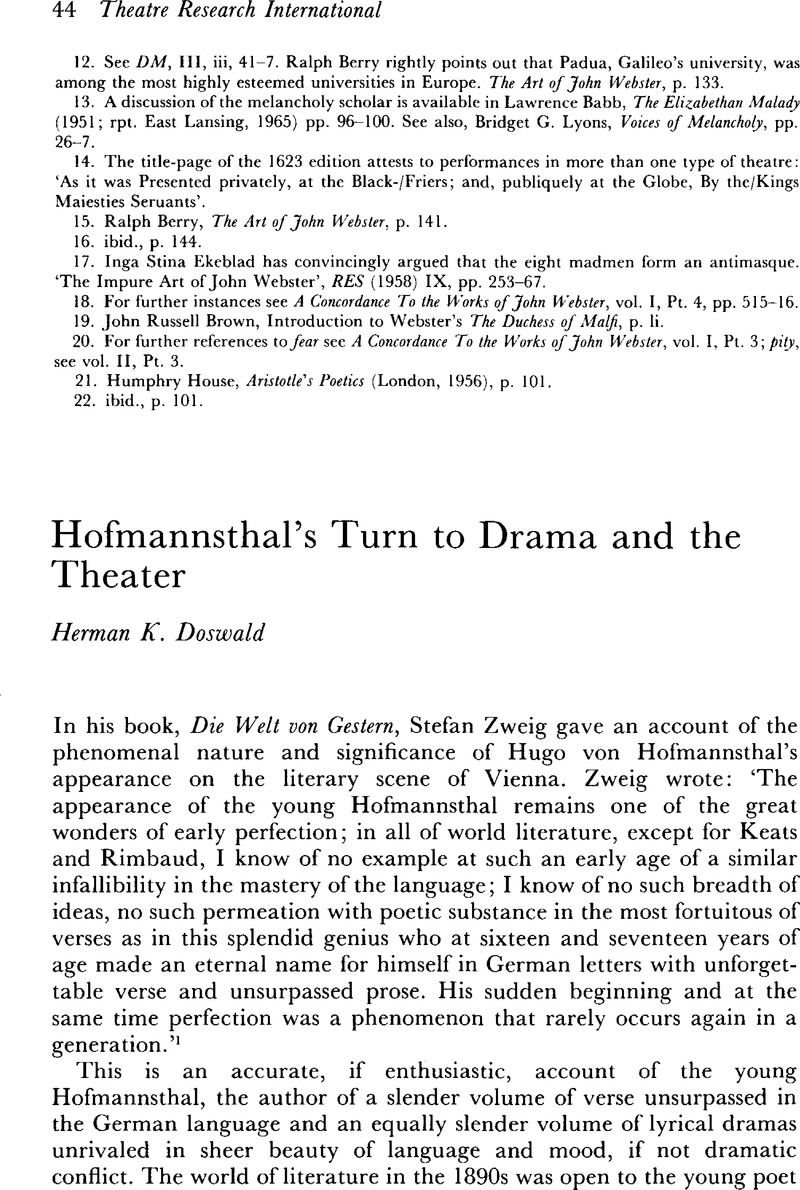No CrossRef data available.
Published online by Cambridge University Press: 23 January 2009

1. Berlin, 1958, pp. 52–3. All quotations from the German are in my translations.
2. See Alewyn, Richard, ‘Unendliches Gespräch’, in Über Hugo von Hofmannsthal (Göttingen, 1958), pp. 33–4Google Scholar, and Briefwechsel zwischen George und Hofmannsthal, 2nd enlarged ed. (Munich and Düsseldorf, 1953), p. 150.Google Scholar
3. Zweig mentioned the great wonder of early perfection with admiration. This was echoed with a note of deprecation by others. Recalling primitive burial rites which required the placement of a heavy stone over a grave to ensure that the departed would not return, while claiming it was done to honor him, Richard Alewyn has noted: ‘In this fashion, while he was still alive, they buried Hofmannsthal with full literary honors and put on his tombstone: here lies a master of the German lyric, he ripened early and died of Anaemia Aesthetica.’ (‘Hofmannsthals Wandlung’, Über Hugo von Hofmannsthal, p. 154).
4. ‘Hugo von Hofmannsthal’, Deutsche Rundschau, 223 (1930), p. 211.Google Scholar
5. Gesammelte Werke, ed. Steiner, Herbert, Prosa I (Frankfurt/M., 1956), p. 228.Google Scholar
6. Prosa IV, (1955), p. 457.
7. Aufzeichnungen (1959), p. 213.
8. ibid., pp. 215–16.
9. ibid., p. 214.
10. See Prosa IV (1955), p. 95.
11. Aufzeichnungen, p. 369.
12. See Broch, Hermann's Hofmannsthal und seine Zeit (Munich, 1958), p. 122.Google Scholar
13. Prosa III (1952), pp. 412–13. Hereafter cited in the text.
14. ibid., p. 416. Hereafter cited in the text.
15. See my article, ‘Hugo von Hofmannsthal and the Salzburg Festivals’ in Neophilologus, LVII, No. 4 (10 1973), pp. 370–4.Google Scholar